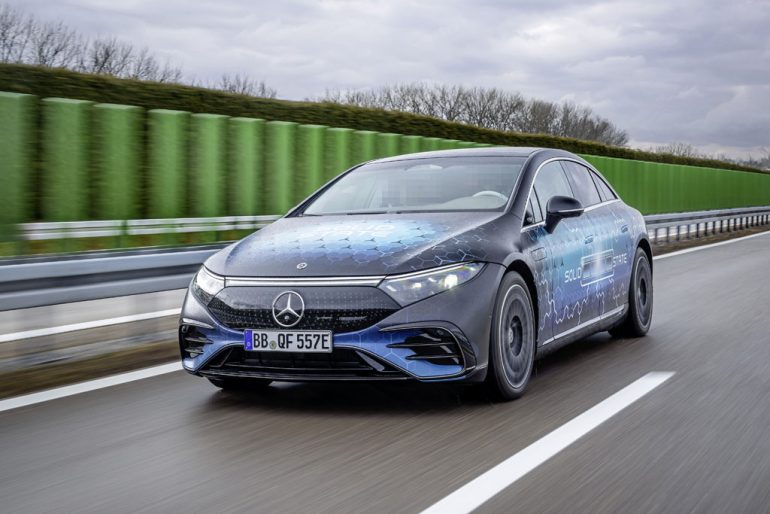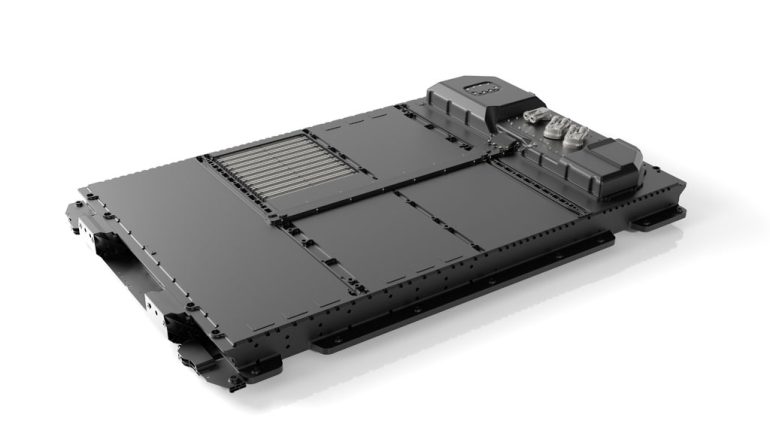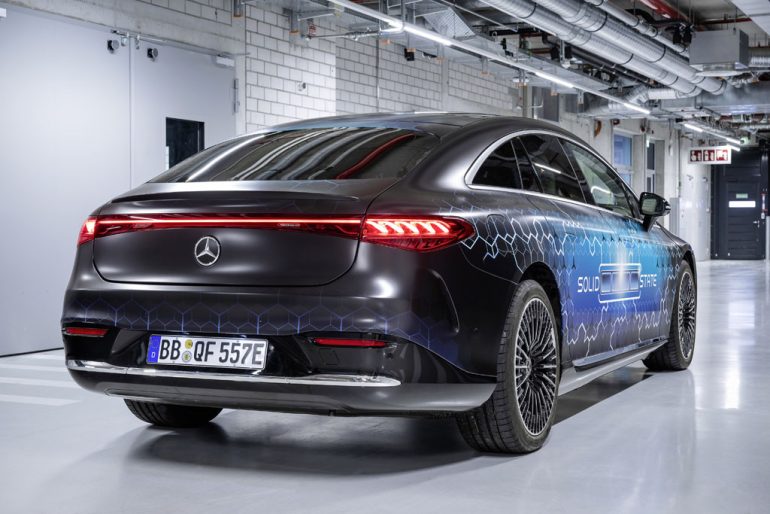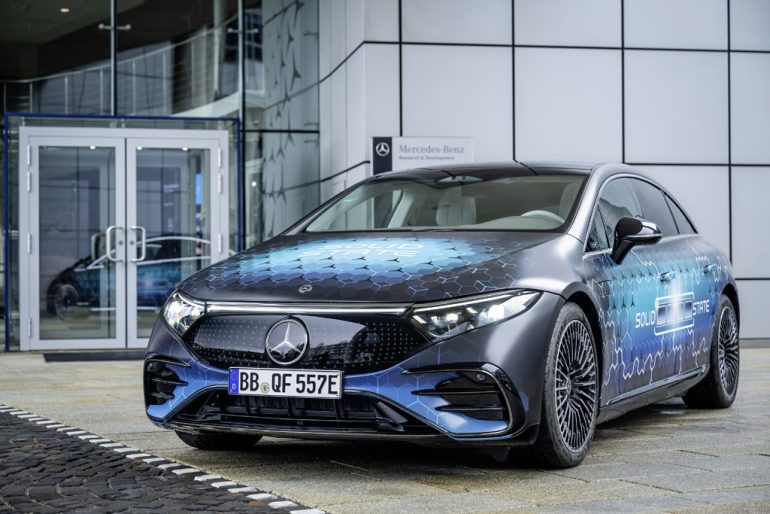Automotive

The future of electric mobility is taking a massive leap forward as Mercedes-Benz, in collaboration with its Formula 1 division, kicks off road testing for its revolutionary solid-state battery technology. Developed in partnership with Factorial Energy, the new battery promises to be safer, lighter, and significantly more efficient than conventional lithium-ion counterparts. With real-world testing now underway in a modified EQS Sedan, Mercedes-Benz is leading the charge in the race toward next-generation EV technology.
The Future of EV Batteries: Solid-State Technology
Solid-state batteries have long been viewed as the next major breakthrough in electric vehicles. Unlike traditional lithium-ion batteries that rely on liquid electrolytes, solid-state batteries use a solid electrolyte. This not only enhances safety by reducing the risk of fires but also enables the use of lithium-metal anodes, significantly increasing energy density.
Mercedes-Benz’s new solid-state battery achieves an impressive gravimetric energy density of up to 450 Wh/kg at the cell level—well beyond what is currently available in the EV market. As a result, this cutting-edge technology allows for a 25% longer range while reducing overall weight, making electric vehicles more efficient than ever.

A Formula 1 Approach to Battery Innovation
To fast-track this development, Mercedes-Benz leveraged the expertise of its high-performance motorsport division, Mercedes AMG High Performance Powertrains (HPP), based in Brixworth, UK. Known for developing industry-leading Formula 1 hybrid power units, HPP engineers played a crucial role in designing the innovative battery pack. This collaboration highlights how F1 technology can rapidly transfer to road cars, driving advancements in efficiency and performance.
The solid-state battery was successfully integrated into a modified Mercedes-Benz EQS Sedan in late 2024. Engineers adapted the vehicle to accommodate the new power source, ensuring seamless operation while optimizing weight distribution. The first laboratory tests took place in Stuttgart before the road test phase officially began in February 2025.

What Makes This Battery Different?
Mercedes-Benz’s solid-state battery features a patented floating cell carrier that addresses one of the key challenges of solid-state technology—material expansion and contraction during charging and discharging. To counteract these volume changes, the battery employs pneumatic actuators that adjust accordingly, maintaining optimal performance and longevity.

Another game-changing innovation is passive cooling, which eliminates the need for active thermal management systems, further reducing weight and energy consumption. Combined with the high energy density of solid-state cells, these advancements contribute to the prototype vehicle’s estimated 621-mile driving range—a significant increase compared to conventional EV batteries of the same weight and size.
Shaping the Future of Electric Mobility
Mercedes-Benz’s collaboration with Factorial Energy dates back to 2021 when the automaker began investing in next-generation battery solutions. By mid-2024, Factorial had delivered its FEST® (Factorial Electrolyte System Technology) lithium-metal solid-state battery cells for testing, marking the first major step toward integrating this breakthrough technology into production vehicles.
With extensive road and laboratory testing planned for the coming months, Mercedes-Benz is positioning itself as a leader in the future of EV batteries. If successful, this development could pave the way for mass adoption of solid-state batteries in passenger vehicles, drastically improving range, efficiency, and safety for electric cars worldwide.

A Historic Milestone for EVs
The launch of real-world testing for a solid-state battery-powered EQS Sedan is a significant milestone in the automotive industry. Mercedes-Benz and its F1 engineering team are proving that this long-anticipated technology is no longer a distant dream but a reality taking shape on the road today. If these tests confirm the expected performance gains, solid-state batteries could redefine electric mobility, bringing longer ranges, lighter vehicles, and safer, more efficient EVs to the market in the near future.
With Mercedes-Benz leading the charge, the transition to solid-state battery technology seems closer than ever—signaling an exciting new era for electric vehicles.
FOLLOW US TODAY:

